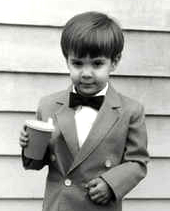Experts urge kids' career talks
 A Victorian parliamentary inquiry has heard children as young as eight could start receiving career advice.
A Victorian parliamentary inquiry has heard children as young as eight could start receiving career advice.
The Career Education Association of Victoria has recommend new requirements for schools to offer careers education for students in years 3 to 12.
“It is important to recognise that career decisions and judgements are not made in the final years of schooling but are made as early as year 3,” it told an inquiry into career advice at Victorian schools.
A recurring theme of submissions to the inquiry has been that many schools are providing too little, too late regarding careers advice.
The association’s chief executive Bernadette Gigliotti Primary says school students could seriously discuss what they want to be when they grow up - different jobs and how different industries impact their lives.
“I'm not saying they need to be picking their jobs, but they need to be able to be immersed in the world of work, they need to understand the roles and responsibilities and start thinking about careers,” she told Fairfax reporters.
Victorian Education Minister James Merlino commissioned the review of careers education in state schools last year.
“There is a great variance in the quality of careers education in our schools, from excellent engagement with students to careers advice that is no different to when I was a student in the 1980's - we can do better,” Mr Merlino said.
The Mitchell Institute wants careers education to start earlier than senior school too.
The group says providing guidance to primary and early secondary school students would “help to lift aspirations and extend the range of career possibilities, particularly for students at risk of disengagement”.
Providing careers education to young children could also help combat stereotypes about “boys” and “girls” jobs.
Dr Charlotte Keating, a Melbourne-based psychologist and neuroscientist, says premature discussion of careers could create a new source of anxiety.
“Kids spend enough time in their VCE years worrying about career and the reality is, until you get out there and experience what life has to offer, you won’t really know if it’s for you,” she told reporters.
Research has shown that half of all school careers advisors work part-time and have to work with a budget of less than $3 to spend on each student.







 Print
Print